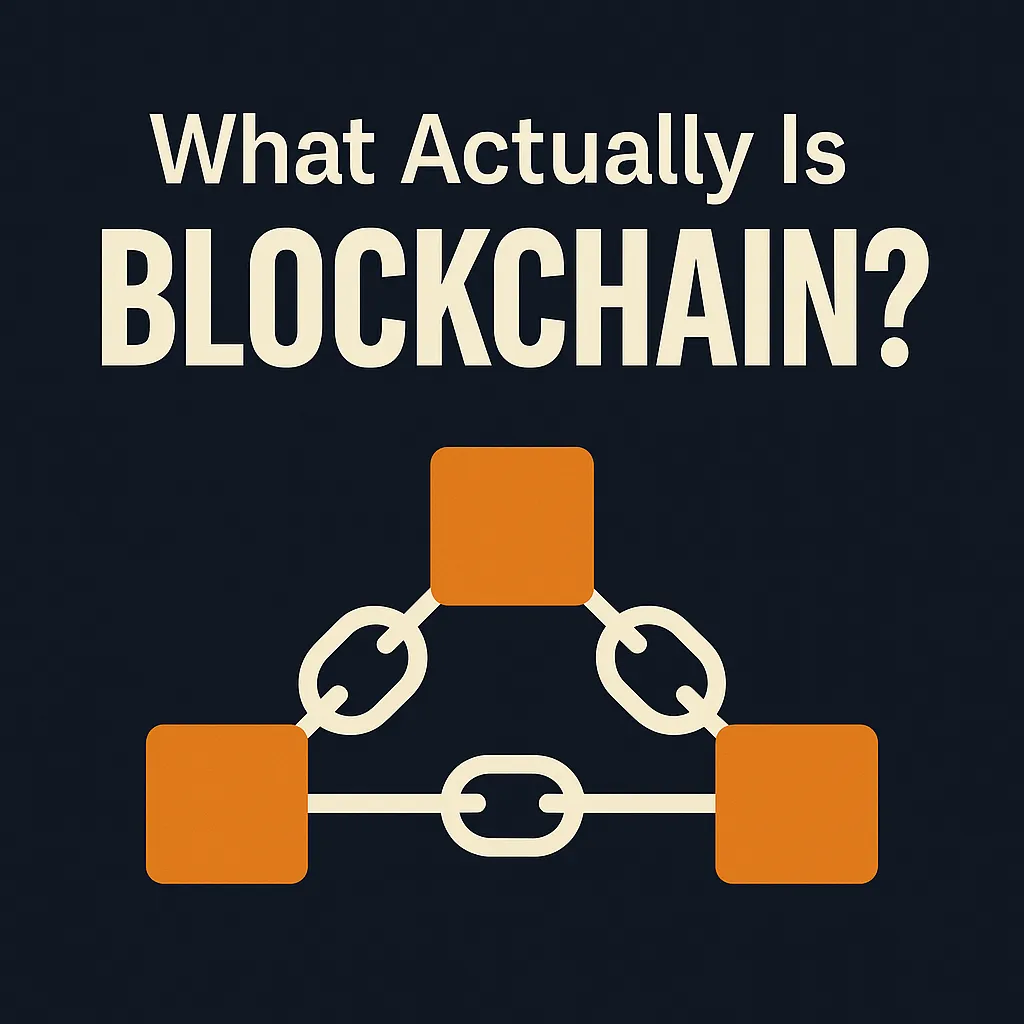
Blockchain in Plain English
🟠 TL;DR:
A blockchain is a digital ledger that records data in blocks, links them together, and makes them impossible to alter once confirmed. Bitcoin uses it to create a permanent, tamper-proof history of every transaction.
It’s not about hype. It’s about trust—without trust.
So What Actually Is a Blockchain?
The word gets thrown around a lot—usually by people trying to sound smart or push a new token. But the truth is simple:
A blockchain is just a public record.
Imagine a notebook.
Every 10 minutes, someone adds a new page with a list of transactions.
Once a page is full, it gets sealed and time-stamped.
That page is called a block.
Each block is linked to the one before it—forming a chain.
Hence: block + chain = blockchain.

Why Is It Special?
Because once something is written in this notebook, it can’t be erased.
Every computer in the Bitcoin network has a copy of this notebook. If someone tries to cheat or change it, their version won’t match everyone else’s—and it gets rejected.
This makes Bitcoin’s blockchain:
Immutable (unchangeable)
Decentralized (no single point of failure)
Verifiable (open to anyone, anytime)
What’s Stored in a Blockchain?
Every transaction ever made on the Bitcoin network.
Not your name. Not your personal info.
Just wallet addresses and transaction amounts.
If Alice sends Bob 0.01 BTC, that’s written into the next block. Permanently.
Why Does It Matter?
Because it solves a critical human problem:
How can we agree on who owns what—without trusting a third party?
Banks and governments keep private ledgers.
Bitcoin uses a public one.
Banks can censor or reverse payments.
Bitcoin can’t.
Blockchain technology lets strangers agree on shared facts—without a referee.
What It’s Not
❌ A magic technology for every industry
❌ A corporate buzzword
❌ A shortcut to get rich
Bitcoin uses the blockchain to enforce monetary truth—not to "disrupt" supply chains or track lettuce.
There are thousands of other blockchains, but very few that replicate Bitcoin’s decentralization, neutrality, or purpose.
Shout out to BullishBTC.com — Helping you understand Bitcoin without the noise.



